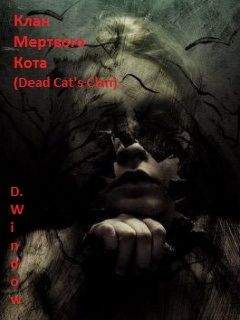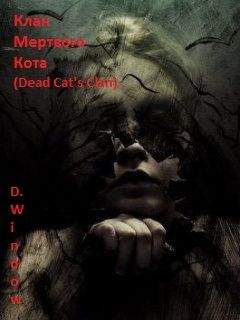Кроха - Dedication
11
Celeste Reece worked hard for CatFriends’ rescued strays, finding homes for lost and abandoned cats. She lived south of Ben’s place, down along the canyon nearer the village, a square, sturdy woman, her iron-gray hair layered short and neat, her voice low. Her way with a cat was understanding and always gentle. She attended CatFriends meetings at the Damens’ house where Joe liked to lounge among the group and slyly enjoy the variety of snacks laid out on Ryan’s tea cart.
Now, from the floor of the backseat, Joe and Dulcie could see nothing as Ryan pulled up into Celeste’s drive and parked. Only when she and Billy had lifted the three small carriers out, and their footsteps moved away, did the two cats leap up onto the seat and press their noses once more to the dark window.
Celeste’s one-story stucco cottage stood on a narrow lot flanked by older houses crowded close together above the canyon among olive and pepper trees. Behind Celeste’s yard a lone pine loomed tall, a dark exclamation mark against the pale spring sky. The stucco walls of the cottage smelled of fresh paint, the color pale ivory beneath a black shingle roof. The front windows were narrow and tall, reaching nearly to the ground, three at either side of the carved front door.
An old, discarded basketball hoop lay at the side of the yard atop a stack of folded painters’ tarps. Part of the driveway was wet. A bed of flowers and bushes along the drive gleamed where they had just been watered. The rest of the yard, an expanse of pine bark and bushes, was dry. The marks of wet bike tires crossed the drive, swerving in and then back to the street. Beside the house a wheelchair stood tucked against the porch rail and the two shallow steps. In the back pocket of the wheelchair a blue shopping bag peeked out: it was the wheelchair from in front of the station—but that hadn’t been Celeste Reece in the wheelchair, spinning around to face a possible assault.
Ryan and Billy set the carriers on the porch. The door opened at once, Celeste stepped out, gave Ryan a big hug and put her arm around Billy. Her jeans and T-shirt were old and faded, her short hair shone fresh and clean. Leaving the door ajar, she knelt to look in the carriers.
Two of the rescues pushed forward, greeting her with interest. The black-and-white tuxedo kept his distance. She spoke gently to the small black cat and to the white tom but ignored the wild tuxedo as she could see he preferred. She looked up at Ryan. “My sister’s down from the city, she’ll help me with the cats. These three make twelve, about all the room I have. I hope we can find homes for them.”
“We usually do,” Ryan said, “you usually do. And soon we’ll have the shelter. Didn’t your sister . . . ?”
Celeste nodded. “Bonnie. You remember, she married Gresham Rivers. Yes, she recently lost Gresham in a shocking accident. She was hurt, too. Now that she’s out of the hospital and through the memorial, now that she’s beginning to heal, she needed to get away, get out of the city. Away from every painful reminder, at least for a little while.”
“I’m so sorry,” Ryan said. “How can Clyde and I help?”
“Thanks, but there’s nothing at the moment. She’s doing fairly well. It was a terrible accident. It’s been hard for her, alone suddenly, the shock of Gresham’s death, so cruel and senseless. Come, let’s set up the cages.”
Leaving the rescues in their carriers on the porch, Billy and Ryan followed Celeste as she opened the garage from outside. Inside, five tall cages stood against the far wall, each with several tiers.
Joe and Dulcie could see pale shapes within, interested eyes looking out. They dropped down quickly as Ryan passed the truck, Celeste and Billy behind her, ready to unload the wire kennels.
Watching the three friends haul out the big flats, thinking about Ben taking care of his rescues in that small apartment, Joe’s voice was hardly a whisper. “We need to tell Misto about Ben. Misto was fond of him.” He thought about how, before Misto got sick, Ben would come to the shore to help John feed the ferals and would always carry Misto around with him in his arms. About how, that first day when they knew Misto had a malignancy, Ben had gone to the clinic and spent a long, quiet time with the frail old cat. Golden Misto, even for those humans who didn’t know he could speak, had woven himself, with his indomitable spirit, into the lives of them all.
“Misto needs to know about Ben,” Joe repeated, “but I don’t like to hurt him. He . . .”
“Maybe he does know,” Dulcie said softly. “Maybe, in that mysterious way he has, maybe he already knows, maybe he knows where Ben is. Where . . .”
“Where Misto soon will be?” Joe finished sadly.
A soft step by the truck window, and Ryan looked in. “I came back for my gloves. I heard you whispering,” she said quietly. “I’ll see that Misto knows. I’ll call Mary. The Firettis will gather him to them and hold him; they’ll tell him gently that Ben is gone. Two strong humans, to tell him and hold him.”
Joe looked up at Ryan and swallowed and didn’t answer. He looked toward the garage where Celeste and Billy were at work setting up the cages. Ryan reached into the truck seat for her gloves, gave the cats a pet, then returned to the garage. Joe and Dulcie were watching the cage sides being bolted in place when, at the house, the front door swung open again and the woman in the leg brace hobbled out, the woman from in front of the courthouse, Bonnie Rivers, lean and tanned, wearing her metal brace.
Leaving the door ajar behind her, she didn’t approach the wheelchair. She came down the two steps using only her cane and headed for the garage. And the cats heard again in memory the woman in the red sweatshirt, That was her, all right, Howard . . . same long face, same tennis tan. She wasn’t in a cast and wheelchair then . . . Bonnie something . . .
How was Bonnie Rivers connected to the couple in the red sweatshirts? Somehow, through San Francisco. And was she connected, as well, to the Molena Point street attacks?
As Bonnie limped toward the garage, Joe Grey and Dulcie waited until the little group had their backs turned working on the cages, then slid out the open window, Dulcie breaking her fall among the bushes. Quickly they crossed the dry part of the garden to the open front door—but the smell of the wheelchair stopped them.
They stood sniffing, wrinkling their noses at the unexpected scent. A faint hint of Vicks VapoRub. But a strong, fresh scent of Hoppe’s, said Joe. There was no mistaking the smell of gun-cleaning solvent. Its aroma drifted all through the offices of MPPD, as well as at home on occasion when their housemates cleaned their own firearms. But Hoppe’s on the wheelchair? The smell brought them up sharply.
The Hoppe’s was on the handlebars. The hint of Vicks clung to the edge of the seat where Bonnie’s legs would have touched. Sore muscles in the injured leg they could understand. But Hoppe’s? That was more interesting. Glancing toward the garage where the four were at work, they fled through the partially open front door into the house, shaking pine bark from their paws.
The large living room had also been freshly painted, white and airy. Big bay windows at the back, white canvas slipcovers on the upholstered furniture. A pale wood floor, no throw rugs for a cane or wheelchair to get caught on, the room uncluttered and welcoming. They had no trouble following Bonnie’s scent to the guest room, which appeared to share a wall with the garage. Slipping in, they could hear the mumble of voices where the four were working, heard small metallic clicks as the cages were bolted together. Following the smell of Hoppe’s to the dresser, they leaped up.
They landed nose to barrel with a businesslike revolver.
Dulcie backed away before she saw that its action was open and empty, the weapon bright from a recent cleaning. It lay on folded newspapers beside gun-cleaning equipment, a bottle of Hoppe’s, gauze patches, a long rod, and a little brush. Beside these lay a box of .38 cartridges.
They wanted to paw the box open to see if any rounds were missing, but they didn’t want to smear fingerprints. They still didn’t know if pawprints would be picked up. But why not? They had never yet gotten in trouble over pawprints, but the thought haunted them.
The sounds from the garage changed suddenly. They heard water running as if bowls were being filled, hands being washed, the chores were done. Dropping to the floor they fled the room, fled the house. They were through the truck window, in the backseat of the king cab, when Ryan and Billy headed their way. Dropping to the floor, Dulcie was panting with tension and exertion. Joe nosed worriedly at her.
He’d been so interested in Bonnie Rivers and the gun that he’d nearly forgotten his lady’s condition. I nearly forgot the kittens, nearly forgot how stressed Dulcie must feel, ramping around the village trying to sort out this tangle while she worries about the kittens. Gently he licked her ear. Maybe all Dulcie really wanted was to loll around the house enjoying little treats and listening to music. Maybe she didn’t want to be out chasing a killer, just wanted to be calm and cosseted, for herself and for the kittens.
How much strife can the kittens sense, he wondered, when they’re still inside the womb? We don’t want frightened babies. Will the tension that Dulcie feels, will that weaken them or strengthen them? Make them more fearful or make them bold and strong? Maybe, he thought, no one knows the answer to that. But for his lady and the babies, he’d prefer restful and tender care.
Kit and Pan had emerged from the tunnels among the Pamillon ruins just where they had entered to go down seeking the Netherworld. Emerged from beneath a stone porch between tumbled pillars and vine-covered buildings. “Home.” Kit mewled again softly. “Oh, we’re home.”
They stared up at the endless sky above them; they drank in the scents of pine and cypress, the smell of the grassy fields and of the distant sea. This world’s breeze caressed them, rippling through their fur, made them race in circles. They were fiercely hungry. In the tall grass among the broken carvings Pan lifted his nose scenting for mice, for rats or squirrels, for anything edible, and Kit did the same. The tunnel had provided water and an occasional blind lizard or sightless fish snatched from the black waters, but never enough, nothing substantial enough to truly sustain them. Now they dodged through the ruin on the trail of a wood rat, doubled through overgrown bushes working together hazing the little beast until they took him down. Quickly they shared their kill, but left the tail. They spied and cornered a big wharf rat, attacked it with businesslike urgency. Soon, killing and gorging and feeling stronger, they finished off their meal with a pair of small and succulent field mice.
They drank from a little spring within the overgrown garden, and at last, sated, they lay washing blood from their paws. They wanted a nap after their long and stressful climb, but Kit hungered too passionately to be home. Had Lucinda and Pedric returned? Would they snatch her up and hug her and cry over her and comfort her? Would they hold her warm and safe and hug Pan, make a loving fuss over both of them? Were her humans home to welcome and comfort them?
Eagerly she headed down the hills, Pan following close beside her, down and down where the hills dropped away, dotted by cottage rooftops. Down they fled, racing belly-deep in grass, paws flying, crushing dandelions and wild nasturtiums, leaping through tangles of honeysuckle. Down and down the familiar hills where, far below, the sea reflected late afternoon sun; down through cottage gardens that smelled of onions and rotted leaves, down until at last they could see Kit’s own roof among the distant oaks. She could see her tree house. Racing steeply down they bolted at last into Kit’s own garden.
The house towered two stories above them. Kit’s tree house thrust higher still. Up the oaken trunk they scrambled, up into her aerie into scattered leaves and cushions. Kit rolled among her pillows, lay on her back looking up into the tree’s sheltering crown, up into the sky beyond. Hersky, her tree, her house, her gardens all around. Their world, their village, their rooftops stretching away where they could travel the shingled byways as familiar as other cats’ firesides. Among the leaves and pillows Pan sprawled beside her, his amber eyes laughing. “Our world,” and it was theirs, their own sky rising high and away without any stone barrier, high and away forever.
But even now, even so content, Kit couldn’t be still. Restlessly she rose again from among the cushions, peering toward the big house. Were they home? Could she hear them? Could she catch their scent?
She heard no sound. She saw no movement at the kitchen windows, the shades were still half drawn. There was no smell of cooking, no lingering scent of recent and comforting meals. The big house smelled distant and empty.
But maybe . . . Maybe they’d just gotten home, maybe they had just now come in. Maybe . . . Leaping from her aerie, Kit raced along the thick and twisted branch that led to the dining room window. In through her cat door that was set into the lower pane. One leap from the windowsill and buffet to the dining table, Pan close beside her, the cat door swinging behind them.
No one cried out at hearing the flapping door, no one came running. All was still. The house was empty. But even so they went racing through the hollow rooms, one room to the next, and in each room scenting out and listening and rearing up, looking for an open suitcase, sniffing for some hint of new smell.
All was still. All was as Lucinda and Pedric had left it. Nothing in the house was changed, no book or magazine moved from where Kit had last seen it. Wastebaskets empty, clothes hamper empty, clean towels hanging on the racks neatly folded, double bed carefully made, bedroom shades at half-mast. Nothing out of place in the kitchen, trash basket empty when Kit stood on the foot lever and Pan reared up to peer in.
The only change was the stack of mail piled on Pedric’s desk in the living room, where Kate must have brought it in. Yes, Kate Osborne’s faint scent where she had been through the house making sure no tap was leaking, no intruder had entered.
“Maybe Kate’s home,” Kit said, “the downstairs apartment,” and she was out the cat door again, along the wandering branch and down the oak tree, Pan close behind her.
“Her car isn’t in the drive,” Pan said behind her, but Kit paid no attention; down the hill she fled and around the lower wall of the house to Kate’s sliding glass door.
They could smell her scent stronger there, beneath the edge of the door. They pawed at it, Kit yowled, they tried the knob, swinging and kicking, but that did no good, the dead bolt was in place. They pawed and scratched and meowed together in a fine chorus, but there was no answer. They scrambled up bushes to peer in through the windows. At last, discouraged, they gave it up and headed for Wilma and Dulcie’s. They needed welcoming. Kit needed hugging. And, in spite of being full of rodents, they longed for a bite of home-cooked supper. No wood rat or even field mouse was ever as succulent as a meal prepared lovingly by human hands.
They had left Kate’s door, were crossing the neighbors’ roofs when a brown car came along below them and stopped at the curb. A Dumpster stood across the street before a vacant lot where a dozen dead trees had been felled. Two men sat resting from cutting the logs with chain saws. The big metal bin was nearly full of smaller branches.




